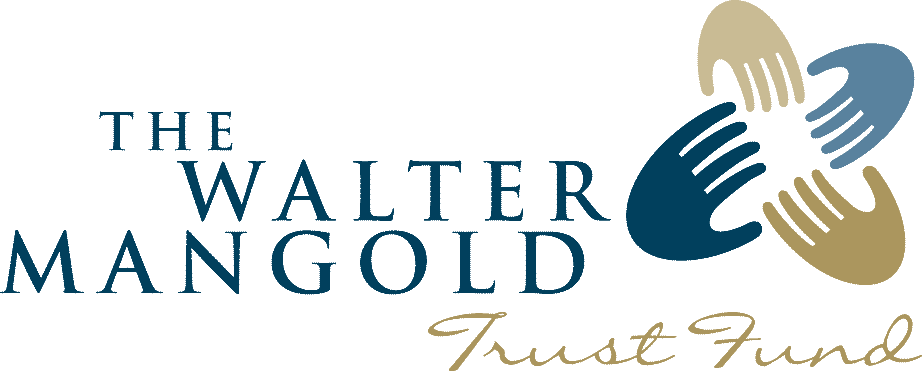Visiting Fellow Reflections.
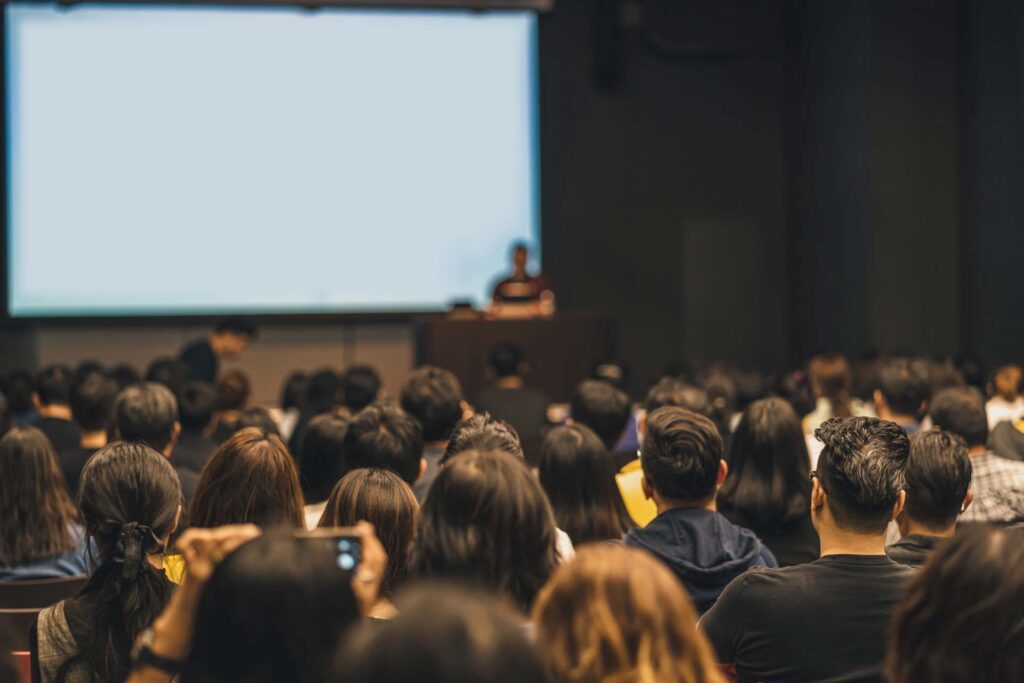
Meet our latest Mangold Fellow: Professor Johanna Gehmacher
In 2024 Visiting Fellow Professor Johanna Gehmacher from the University of Vienna came to the University of Melbourne to deliver a special program.
Professor Gehmacher specialises in gender history with a focus on the German women’s movement starting at the turn of the twentieth century. Her in-depth research into polyglot feminist activists has always been multi-lingual in method. In her recent monograph, Feminist Activism, Travel and Translation Around 1900. Transnational Practices of Translation and the Case of Käthe Schirmacher, she analyses the ways in which multilingualism, language learning and translation shaped the biographies and politics of early feminist activists and how the work of cultural transfer provided them with a livelihood.
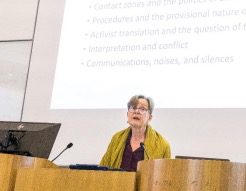
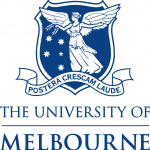
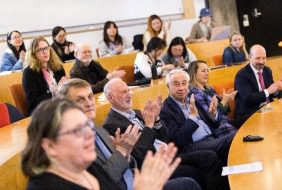
Reflections of a Mangold Fellow.
Mangold Visiting Fellows are appointed by the University of Melbourne.
ACADEMIC REFLECTIONS
I received a very warm welcome from the colleagues and staff at the School of Languages and Linguistics on September 5. On that day, I gave my first guest lecture in Dr. Andreas Dorrer’s German 8 course. I spoke about concepts and activities of the women’s peace movement and discussed with the students an article by the Austrian women’s rights activist and pacifist Rosa Mayreder about the Women’s Peace Conference in The Hague in 1915. After an introduction to the historical context of the text, a discussion round in German gave the students the opportunity to reflect on the challenges of transnational peace activism in wartime and to practise their German. We also talked about the personal and political connections between feminism and peace activism during the First World War.
Another guest lecture (also in German) took place on September 9 in Prof. Birgit Lang’s German 10 course, which focused on the history and culture of the Alps. Tying in with the semester topic, I spoke about travel writing and alpinism around 1900 and placed a special focus on gender-specific discourses on nature, tourism and civilization. Connections between women’s movements of the time and new, positive perspectives on nature movements were also addressed. Using sources which I had provided in advance for preparatory reading, I also discussed the differences and similarities between various public and private forms of correspondence for different audiences with the students. The advanced level German language competences allowed for a lively debate on epistolary styles, practices of letter writing and journalism.
The following week, I had the opportunity to learn more about the research interests and projects of German Studies students in two Research Higher Degree Student Workshop Masterclasses (September 17 and 18). The first of these masterclasses focused on translation history and method and opened up reflections on the relationship between linguistics and historiography. The challenges of multilingual source corpora, methodological aspects of translation and non-translation in historical projects and questions of historical contextualization in projects on German literature were among the topics discussed with students in English.
The second masterclass, a hybrid seminar with PhD students from different disciplinary backgrounds, was also attended by academics from other universities in Australia and New Zealand. Here the focus was on the students’ projects, which were outlined in short presentations (in English). I gave feedback on methodological issues as well as on questions of integration into research discourses and dissemination of the results to a broader public. I had the impression that the participants particularly welcomed my comments on the similarities and differences between their working contexts and the experiences of doctoral students in Austria.
In addition to these teaching assignments, colleagues at the Faculty of Languages and Linguistics were also kind enough to involve me in their internal debates and reflections on teaching and didactics. Two discussion sessions were particularly interesting for me: a round table with junior scholars in languages, gender and history (September 6) on the use of textbooks and a curriculum review workshop with the teachers of the German program (September 11).
As a historian working on transnationalism and the history of translation, I gained valuable insights into the problems and challenges of language teaching. For my part, I was able to contribute reflections on the role of languages in history teaching and report on recent literary publications with a focus on feminism and gender.
The discussion with the language scholars about textbooks was particularly important for me. Together with my colleague Katharina Seibert from Tübingen, I am currently preparing a textbook on gender history that will not only support the teaching of gender history in history classes, but also help students of other disciplines such as languages, political science or sociology to better integrate historical perspectives on gender into their studies. The experiences of the participants in this session with the use of textbooks were therefore particularly informative for me.
It was a special honor for me to give the annual Mangold Lecture at the University of Melbourne on September 12. Under the title “Activist Translation and Language Learning. Rosika Schwimmer Navigates the Contact Zones of Transnational Women’s Movements”, I discussed transnational women’s activism around 1900. I spoke about the various movements that emerged in many Western countries in the last decades of the 19th century. These movements not only sought to create networks across national borders to advocate for women’s rights and social justice, but the activists also developed new forms and practices of transnational cooperation. In more recent research, it is therefore considered that they were pioneers of what would later be called NGO politics and transnational civil society.
Using the case of an important transnational women’s organization of the time, the International Woman Suffrage Alliance (IWSA), the Walter Mangold Lecture took a closer look at two specific practices for creating transnational spaces: Language learning and translation.
Drawing on the reflections of one of the IWSA’s leading figures, Hungarian-born Rosika Schwimmer, on the challenges of multilingual exchange in a political arena, I attempted to re-evaluate and differentiate theoretical concepts such as Maria Tymocko’s “activist translation” or Mieke Bal’s “traveling concepts” in order to integrate these approaches into the methodological framework of both transnational history and the history of translation. After this lecture, which was followed by a lively discussion, it was a great pleasure and honor for me to be invited to a dinner with colleagues and distinguished members of The Mangold Trust at the University House.
The accommodation at Ormond College during my stay was very pleasant and comfortable. The colleagues and staff were extremely friendly to me, and I enjoyed my stay in the beautiful apartment overlooking the university oval. I was all the more sorry that I had to cancel the lecture on transnational women’s journalism around 1900 that I had planned to give at Ormond College. Due to illness that hit me in the second half of my stay, I had to cancel several appointments and give both masterclasses online. I was very glad that I was well enough at the end of my stay to at least attend the very interesting conference on queer archives at the Victoria Pride Centre as an audience member, which opened up important networking opportunities, e.g. with Professor Katie Sutton from the University of Canberra. A meeting with history professors David Goodman, Matthew Champion, James Keating and Bronwyn Beech Jones from the University of Melbourne was also very fruitful and helped me to make new connections in the field of both gender history and transnational history. The most important collaboration, however, was with Professor Birgit Lang. Continuing our longstanding exchange on issues of exile during the Second World War and on translation history, we had the opportunity to discuss possible future projects in this area, particularly in the context of gender history and the history of sexuality.
Another outcome of my very enriching and enjoyable stay at the University of Melbourne was the fact that I had time to continue and finalize a recent article on transnational history and gender history that will be published in the peer-reviewed Yearbook of Transnational History. Titled “Writing Transnational Women’s and Gender History,” in this article I argue for closer collaboration and more systematic linkages between the two productive and innovative fields of transnational history and women’s and gender history. Among other things, I also highlight the challenges of the multilingualism of academic debates in both gender history and transnational history. These reflections have benefited greatly from suggestions and new ideas that I have received in discussions with colleagues at the School of Languages and Linguistics at the University of Melbourne.
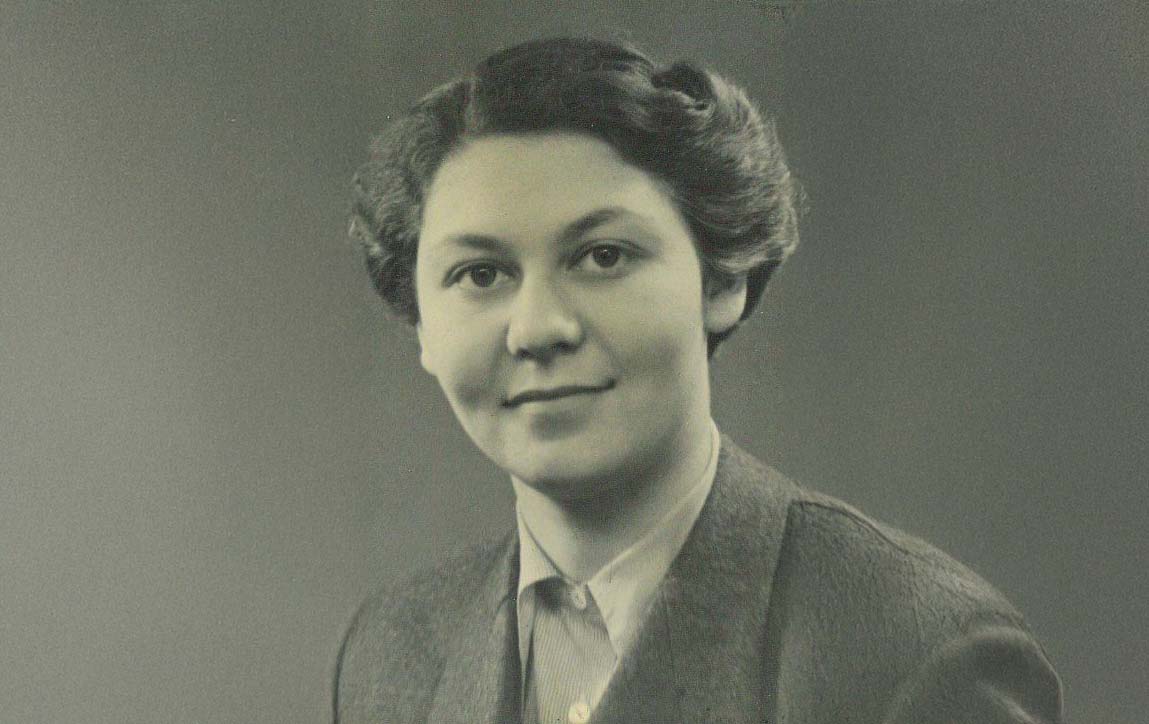
“…greater understanding and tolerance between the people of the world – and consequently a lessening of conflict – could be achieved through the study of other languages and cultures.”
Anne Marie Herzenberg on Walter Mangold
